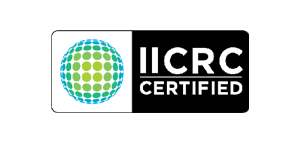If you’ve ever experienced flooding or water damage in your home, you know it can be a stressful and costly situation to deal with. However, did you know that water damage can also pose a significant risk to your health and safety? The question on your mind may be “Is it safe to sleep in a house with water damage?”
The answer is not a simple one, as it depends on the extent of the damage and the length of time it has gone untreated. In this article, we will explore the potential hazards of living in a home with water damage, both for your health and the structural integrity of your house. We will also provide tips on how to manage water damage and keep your home and family safe and healthy.
Key Takeaways:
- Living in a home with water damage can pose significant risks to your health and safety.
- Mold growth, respiratory issues, allergies, and compromised structural integrity are common hazards of water damage.
- It is crucial to address water damage promptly to prevent further health and structural concerns.
- Regular home inspections and repairs can prevent water damage from occurring in the first place.
- Consulting with a professional restoration company can help manage and mitigate the risks of water damage.
Understanding the Dangers of Water Damage
Water damage can have severe consequences for your home and your health. It is crucial to address it as soon as possible to prevent further damage. Here are the dangers of water damage to be aware of:
- Mold growth: Moisture can lead to mold growth, which can cause a host of health problems, including respiratory issues and allergies.
- Structural damage: Water damage weakens the structural integrity of your home, which can lead to costly repairs and even hazardous situations.
- Electrical hazards: If water comes into contact with electrical systems in your home, it can lead to electrocution or even fire.
- Health risks: Living in a home with water damage can cause a range of health problems, including infections, skin irritation, and other related ailments that can affect your overall well-being.
By addressing water damage promptly, you can ensure that your home remains safe and habitable. Don’t put off repairs, as water damage only worsens over time.
Health Risks Associated with Water-Damaged Dwellings
Water damage to your home can create an environment that can be detrimental to your health. Exposure to mold growth, which is a common result of water damage, can lead to various respiratory issues such as coughing, wheezing, and asthma.
In addition, exposure to allergens in water-damaged homes can trigger allergies and cause skin irritation. This is because the humidity caused by water damage provides an optimal environment for dust mites and other allergens to thrive.
Moreover, water damage can impact the indoor air quality of your home, leading to the release of harmful substances such as formaldehyde, which can cause eye, nose, and throat irritation. This is because water damage can cause building materials to break down and release toxic substances into the air.
It is essential to address water damage promptly to prevent these health risks from taking hold. A visit from a professional restoration company can help to identify and mitigate water damage risks, ensuring the health and safety of your home.
Structural Risks: The Impact on Your Home
Water damage can have severe effects on a property, not just in terms of health risks but also on its structural integrity. Ignoring water damage for extended periods can lead to the following structural risks:
| Structural Risks | Impact on Home |
|---|---|
| Weakened foundations | The foundation may become unstable, posing a significant danger to your home’s structural support. |
| Rotting wood | Water damage, if left untreated, can lead to rotting wood that weakens the structure of the building and can lead to the collapse of your entire home. |
| Compromised electrical systems | Water damage can lead to electrical systems being faulty, causing fires or disasters. The exposure to water can corrode and damage electrical connections, meaning that they will work poorly or not at all. |
It’s essential to address water damage concerns promptly and effectively to minimize the impact on your property’s structure.
Conclusion
Water damage can pose a significant threat to your health and home, making it critical to address the issue promptly. If you suspect your house has water damage, it is crucial to seek professional help right away to avoid any potential risks.
To ensure your safety and the durability of your home, it is also essential to stay vigilant and proactive in identifying and addressing any water damage that may arise. Regular inspections and maintenance of your property can go a long way in preventing any significant damage and keeping your home safe and comfortable.
Remember, when it comes to water damage, prevention is always better than cure. Taking proactive measures to protect your home and health can save you time, money, and stress in the long run.
FAQ
Is it safe to sleep in a house with water damage?
Sleeping in a house with water damage can pose risks to your health and safety. It is important to address water damage promptly to mitigate these risks.
What are the dangers of water damage?
Water damage can lead to various threats, including mold growth, weakened foundations, rotting wood, and compromised electrical systems. These dangers can impact both your health and the structural integrity of your home.
What health risks are associated with living in a water-damaged dwelling?
Living in a house with water damage can result in mold growth, which can trigger respiratory issues, allergies, and other health ailments. It is crucial to address water damage to maintain a healthy living environment.
How does water damage impact the structural integrity of a home?
Water damage can weaken foundations, cause rotting wood, and compromise electrical systems. These structural risks can lead to hazardous situations and the deterioration of your home over time.





